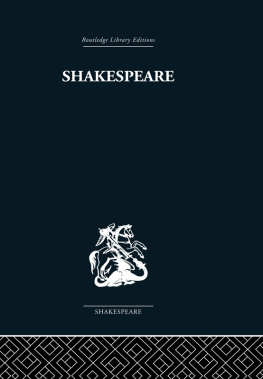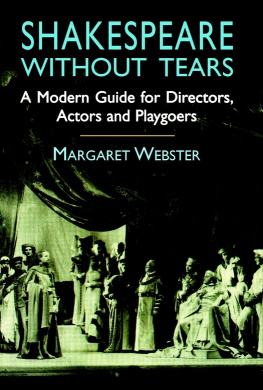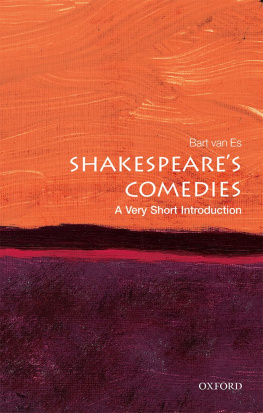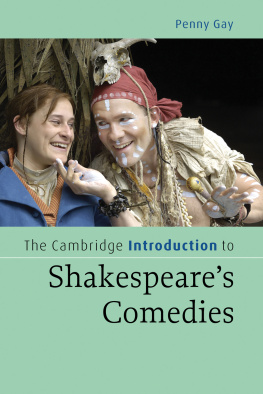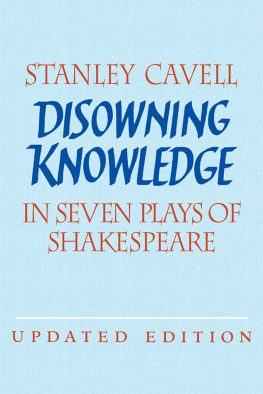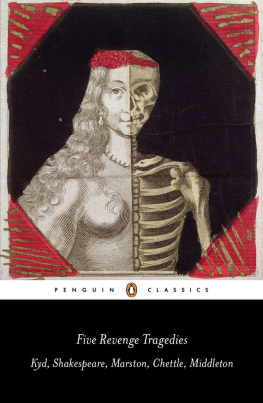Routledge Library Editions
SHAKESPEARE
SHAKESPEARE
Routledge Library Editions Shakespeare
CRITICAL STUDIES
In 36 Volumes
| I | Shakespeare's Poetic Styles | Baxter |
| II | The Shakespeare Inset | Berry |
| III | Shakespeare | Bradbrook |
| IV | Shakespeare's Dramatic Structures | Brennan |
| V | Focus on Macbeth | Brown |
| VI | Shakespeare's Soliloquies | Clemen |
| VII | Shakespeare's Dramatic Art | Clemen |
| VIII | A Commentary on Shakespeare's Richard III | Clemen |
| IX | The Development of Shakespeare's Imagery | Clemen |
| X | Shakespeare | Duthie |
| XI | Shakespeare and the Confines of Art | Edwards |
| XII | Shakespeare the Dramatist | Ellis-Fermor |
| XIII | Shakespeare's Drama | Ellis-Fermor |
| XIV | The Language of Shakespeare's Plays | Evans |
| XV | Coleridge on Shakespeare | Foakes |
| XVI | Shakespeare | Foakes |
| XVII | Shakespeare's Poetics | Fraser |
| XVIII | Shakespeare | Frye |
| XIX | The Shakespeare Claimants | Gibson |
| XX | Iconoclastes | Griffith |
| XXI | That Shakespeherian Rag | Hawkes |
| XXII | The Living Image | Henn |
| XXIII | Shakespeare, Spenser, Donne | Kermode |
| XXIV | Themes and Variations in Shakespeare's Sonnets | Leishman |
| XXV | King Lear in Our Time | Mack |
| XXVI | Shakespeare as Collaborator | Muir |
| XXVII | Shakespeare's Sonnets | Muir |
| XXVIII | The Sources of Shakespeare's Plays | Muir |
| XXIX | The Voyage to Illyria | Muir & O'Loughlin |
| XXX | Shakespeare | Nicoll |
| XXXI | The Winter's Tale | Pyle |
| XXXII | The Problem Plays of Shakespeare | Schanzer |
| XXXIII | Swearing and Perjury in Shakespeare's Plays | Shirley |
| XXXIV | The Artistry of Shakespeare's Prose | Vickers |
| XXXV | Literature and Drama | Wells |
| XXXVI | Readings on the Character of Hamlet | Williamson |
SHAKESPEARE
The Dark Comedies to the Last Plays:
From Satire to Celebration
R A FOAKES
First published in 1971
Reprinted in 2005 by
Routledge
2 Park Square, Milton Park, Abingdon, Oxon, OX14 4RN
Transferred to Digital Printing 2008
Routledge is an imprint of the Taylor & Francis Group
1971 R A Foakes
All rights reserved. No part of this book may be reprinted or reproduced or utilized in any form or by any electronic, mechanical, or other means, now known or hereafter invented, including photocopying and recording, or in any information storage or retrieval system, without permission in writing from the publishers.
The publishers have made every effort to contact authors/copyright holders of the works reprinted in Routledge Library Editions Shakespeare. This has not been possible in every case, however, and we would welcome correspondence from those individuals/companies we have been unable to trace.
These reprints are taken from original copies of each book. In many cases the condition of these originals is not perfect. The publisher has gone to great lengths to ensure the quality of these reprints, but wishes to point out that certain characteristics of the original copies will, of necessity, be apparent in reprints thereof.
British Library Cataloguing in Publication Data
A CIP catalogue record for this book is available from the British Library
Shakespeare
ISBN 0-415-35287-8
ISBN 0-415-33086-6 (set)
Miniset: Critical Studies
Series: Routledge Library Editions Shakespeare
Shakespeare
the dark comedies to the last
plays: from satire to celebration
R. A. Foakes

London Routledge & Kegan Paul
First published in 1971
by Routledge & Kegan Paul Ltd.
Broadway House, 68-74 Carter Lane
London EC4V 5EL
Printed in Great Britain by
T. and A. Constable Ltd., Edinburgh
Set in 11 on 12 pt. Times New Roman
R. A. Foakes 1971
No part of this book may be reproduced
in any form without permission from
the publisher, except for the quotation
of brief passages in criticism
ISBN 7100 6963 4
Contents
This study falls into three sections, but is concerned primarily with Shakespeare's development towards and achievement in his last plays. The middle section, on satire and tragedy, provides a bridge between the other two, and is limited in scope to what is essential to the argument. This part could have been developed at much greater length, and I have considered some of the issues raised in it elsewhere, especially in an essay, Tragedy at the Children's Theatres after 1600: A Challenge to the Adult Stage, printed in The Elizabethan Theatre II, edited by David Galloway (1970), pp. 3759.
It would be impossible to record all influences on me, and all my debts, and in the course of the book I have referred only to what is immediately relevant. I would, however, like to express my gratitude to Paula Neuss and to Michael Hatta-way who helped me greatly with their advice.
I am grateful to Messrs Faber & Faber Ltd and to Random House Inc., New York for permission to quote Muse des Beaux Arts from W. H. Auden, Collected Shorter Poems 19271957.
R. A. F.
Introduction
Some years ago, when I was editing King Henry VIII, I was inclined to accept the conventional treatment of Shakespeare's last plays as myths or symbolic patterns,
By far the biggest and most influential school of criticism we have to consider is a school of many sects. Its members are united in the belief that the Romances are written in a form of other-speaking, and must be translated before their significance can be understood. There is little point at this stage in the waning of the century in speaking once more of the tremendous impact of anthropology and comparative religion on criticism, but it must be said that interest in the last plays would have been a shadow of what it has been in fact, if vegetation rites and royal deaths and resurrections, and the symbolic patterns in which the inner realities of human experience display themselves, had been less enthusiastically received into the small-talk of the age.
A stress on ideas and themes tends to lead our attention away from the plays as drama; and much criticism of them is written as if it were commenting on the ideas in a rather difficult novel, or describing a pattern of symbols.
Next page
